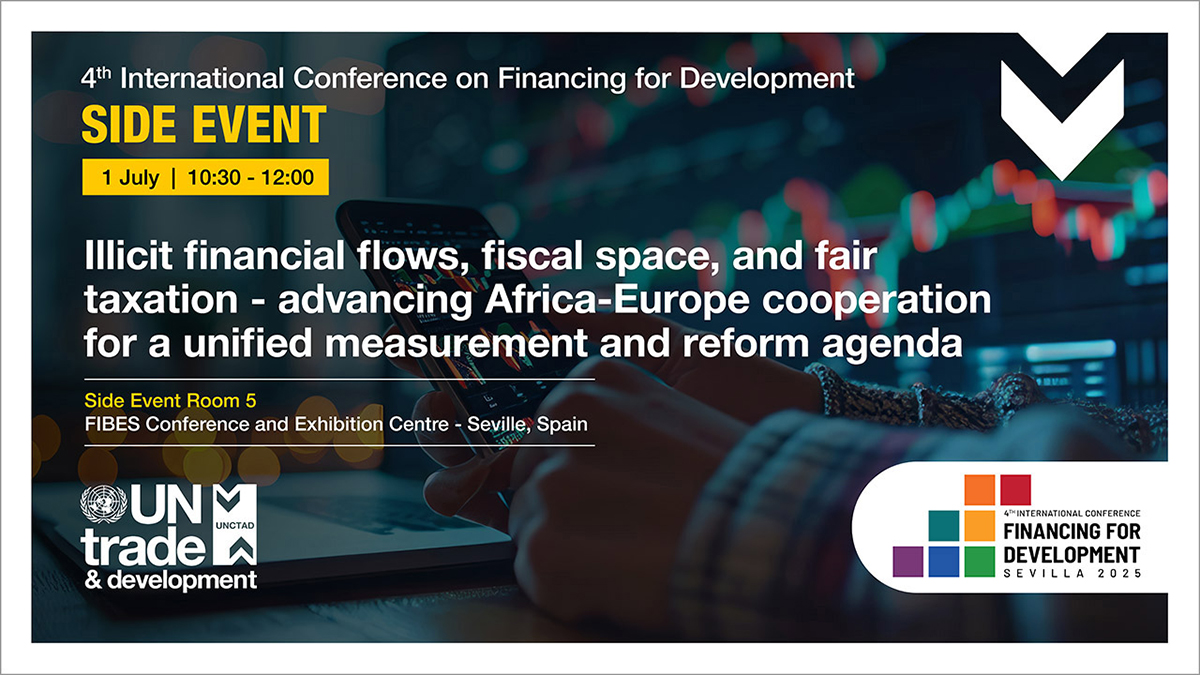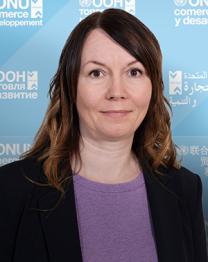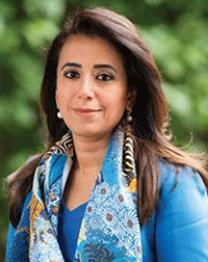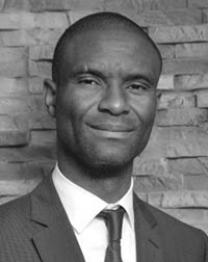
Geopolitical tensions and shifting global priorities have weakened the multilateral system and widened the divide between the Global North and South. In this evolving landscape, Africa-Europe cooperation on sustainable development demands a strategic reset that serves the long-term interests of both continents. Traditional financing tools like Foreign Direct Investment (FDI) and Official Development Assistance (ODA) alone are no longer sufficient to meet Africa’s ambitious development goals. The continent needs to mobilise an estimated $1.3 trillion annually to achieve the Sustainable Development Goals by 2030, as outlined in the UN Agenda 2030 and the African Union’s Agenda 2063. At the same time, European partners face mounting fiscal pressures from inflation, climate change, the Ukraine and Gaza conflicts, humanitarian crises, and competing social priorities.
These shared challenges call for renewed political will and joint action to expand sustainable finance. The Fourth International Conference on Financing for Development and South Africa’s G20 presidency offer a unique opportunity to reset Africa-Europe financial cooperation on a more strategic and impactful path. Expanding fiscal space is central to this agenda. African countries must generate the resources needed to finance sustainable development, deliver essential services, and respond to mounting debt, health and climate financing burdens. Yet this effort is consistently undermined by Illicit Financial Flows (IFFs) which drain a significant amount from the continent each year as well as by outdated global tax rules and fragmented financial data systems that limit effective policy action.
As we approach the 10-year anniversary of the Mbeki Report on IFFs, a renewed global push is needed to strengthen measurement systems, improve cross-border data coordination, and tackle the systemic enablers of tax abuse and capital flight. These reforms must be shaped by African priorities, backed by aligned partnerships, and rooted in transparency and equity.
Amidst evolving global tax governance debates, this is a pivotal moment to advance an Africa-driven agenda on fiscal transparency, domestic resource mobilisation, and debt sustainability. It also creates space to forge stronger Africa-Europe partnerships aimed at closing financial data gaps, harmonising monitoring frameworks, and aligning fiscal policies with sustainable development goals.
To seize this moment, the Africa-Europe Foundation proposes to host a high-level dialogue among African and European critical stakeholders, offering a discreet and candid platform for experience sharing and trust-building. This gathering will explore the most effective strategies for expanding Africa’s fiscal space and deepening sustainable cross-continental financial cooperation, setting the stage for concrete progress during the FfD4 and beyond.
The session also provides a timely platform to share tailored African solutions to combat IFFs and Europe’s ongoing contributions including through the Team Europe Initiative on Combatting Illicit Financial Flows and Transnational Organized Crime (TEI IFF/TOC), and the potential to scale these efforts through strengthened partnerships and cooperation frameworks.
Crucially, this moment also presents a unique opportunity for joint action between European and African member states to drive momentum toward an ambitious and inclusive UN Framework Convention on International Tax Cooperation.
Objective
This roundtable will:
- Examine the current landscape of IFFs, debt pressures, and domestic resource mobilisation in African countries.
- Showcase African and European approaches to combatting, measuring IFFs and improving data for decision-making.
- Share tangible ways on how national deposit development banks and climate financing initiatives can and have addressed development financing needs.
- Define joint policy priorities to combat IFFs, reform global tax rules, improve debt sustainability, and close investment efficiency and sustainability gaps.
- Leverage the G20, FfD4, and AU-EU platforms to strengthen cooperation and tangibly accelerate Africa’s fiscal agenda globally.
Discussion Themes
- Data Challenges in Measuring IFFs: What are the limitations, gaps, and emerging solutions? How can African and European actors harmonise their approaches to tracking capital leakages?
- What specific policy reforms and data investments are needed to improve IFF measurement and enforcement globally and regionally?
- Global Tax Governance: How can tax policy reform better serve African sustainable development goals? What changes are needed in global rules to stop base erosion, ensure fair taxation of multinationals and end harmful tax incentives?
- Debt and Fiscal Space: How can debt restructuring, concessional finance, and transparency mechanisms improve fiscal sustainability? What role can national deposit and development banks play in mobilising private domestic financial resources and strengthening sovereign financial systems to directly support the financing of sustainable development in their respective countries?
- How can Europe formulate a more visible agenda on IFF and fair global taxation and what role should Europe play in supporting African leadership on IFFs and DRM financially, technically, and politically?
- Strategic Partnerships: What role can joint Africa-Europe platforms like the Team Europe Initiative play in scaling solutions for IFFs, DRM, and debt? How can bilateral and multilateral actors better align with national priorities? How can cross-regional cooperation improve debt transparency, policy alignment, and public accountability?
- Climate Financing – What role can climate finance mechanisms and global solidarity levies play in closing development financing gaps and advancing resilient, inclusive growth?
Expected Outcomes
- A joint policy brief or communiqué capturing shared priorities for tax reform, IFF measurement, and investment efficiency and sustainability.
- Build Coalitions of the Willing by uniting leaders on issues like international tax, debt, trade, combatting IFFs to better achieve the Sustainable Development Goals, including paradigm shifts in collaboration and partnerships, and build opportunities for concessions and support in ongoing global dialogue.
- Showcase and discuss the UNCTAD-UNODC Conceptual Framework for the statistical measurement of IFFs and its definition to improve data for policy decision-making.
- Strategic commitments toward a common IFF measurement framework aligned with SDG targets and policy reforms.
- Highlight progress arising from the Team Europe Initiative on Combatting Illicit Financial Flows and Transnational Organized Crime (TEI IFF/TOC)
- Political messaging to feed into future FFD conferences, the AU-EU Summit, and the G20 Leaders’ Communiqué.
- A roadmap for scaling joint Africa-Europe IFF data pilots and country engagement in 2025–26.
Participants
- African and European ministries of finance, tax authorities, and central banks
- European and African statistical and policy institutions
- UN system actors, civil society, think tanks, and international organizations
- Philanthropies, development and public finance institutions, and foundations


Anu Peltola is the Director of UNCTAD Statistics, Data and Digital Service overseeing the statistical, digital transformation and information technology work of the UN Trade and Development. She supports countries in measuring Sustainable Development Goals (SDG) indicators on trade, maritime transport, investment, illicit finance, South-South cooperation, and enterprise sustainability. Anu brings over 25 years of experience in official statistics at both the national and international levels.
She serves as the UNCTAD Chief Statistician coordinating internal, UN system-wide and international statistical and data efforts, including initiatives such as beyond GDP and the cost of SDG transitions. She is the co-chair of the UN system Chief Statisticians (CCS-UN) and the Committee for the Coordination of international Statistical Activities (CCSA) consisting of 45 international organizations. Her team also contributes to the development of new statistics and methodologies and supports UNCTAD programs in creating and delivering innovative, AI-assisted data management platforms for diverse domains such as non-tariff measures, informal cross-border trade, international investment policies, laws and regulations. It helps enhance countries' statistical capacity in measuring trade and development, for instance through the Trade-in-Services Statistics information system (TiSSTAT), a modern tool for national statistical authorities, as well as through a new set of indicators on gender equality in trade and the inclusive growth index (IGI). UNCTAD's statistics are released in UNCTAD Data Hub and Data Insights always reflecting the latest data in UNCTADStat and SDG Pulse sharing the latest data-driven analysis.
Before joining UNCTAD, Anu was engaged in preparing Chief Statisticians’ meetings under the Conference of European Statisticians in UNECE and coordinated international efforts to develop guidance for instance on modernising statistical legislation and enhancing the value of official statistics. She established a new joint work stream for climate and statistical communities. Previously, she worked in Statistics Finland serving as Head of Statistics and Head of Development in short-term economic, business and household statistics.


Birgit Pickel is Director-General for Africa in the Federal Ministry for Economic Cooperation and Development. She is also Co-Chair Team Europe Initiative in combatting illicit financial flows and related transnational organised crime in Africa (TEI - IFFs)
She has more than 20 years of experience in development policy and cooperation, including 11 years in management positions.
Ms Chenai Mukumba is currently the Policy Research and Advocacy Manager at Tax Justice Network Africa (TJNA).
Chenai is responsible for leading the policy unit in research coordination, policy engagement at regional and global levels and technical backstopping of TJNA's national-level advocacy.
She has expertise in international trade and Africa economic governance, with experience in research coordination, policy advocacy and leadership development.
Before joining TJNA, Chenai served as the Director of the Consumer Unity and Trust Society (CUTS) International, Lusaka, a research and advocacy think tank with offices in Africa and Asia.
Dr. Patrick Ndzana Olomo is Economist, Acting Director Economic Development, Integration and Trade Directorate and Head of Economic Policy and Sustainable Development Division and Coordinator of the Productive Transformation and Regional Value Chain Initiatives at the African Union Commission (AUC) in Addis Ababa, Ethiopia.
His work includes contributing to Africa’s economic transformation through regional value chains, industrialization, financial Sector Development and Regional Integration in Africa.
Before joining the Commission, he served as Lecturer, at Omar Bongo University (ENSET-Gabon) and International Consultant at the United Nations Development Programme (UNDP), the African Development Bank and the Economic Community of Central African States (ECCAS), where he successfully applied economic principles to produce rigorous analytical work and policy orientations in private sector development, macroeconomic and financial situation Central African Countries for economic and social transformation.
Dr. NDZANA's research interests include: international economics, investment, private sector, regulation, institutions, and policy evaluation. In addition, Dr. NDZANA is the Editor of the African Integration and Development Review of the AUC. He holds a PhD in Economics from Dschang University (Cameroon).

Friederike Roder joined the European Climate Foundation in December 2024 as the Director of the Secretariat for the Global Solidarity Levies Task Force (GSLTF), which is hosted by the ECF. Friederike plays a key role in advancing global efforts to raise revenue for climate action, development, and nature protection.
With 20 years of experience in development cooperation, climate finance and governance, Ms. Roder has a strong background in both the public and civil society sectors. Before joining the ECF, she held leadership roles at Global Citizen and the ONE Campaign. Her career also includes assignments with the African Union, the German government, the OECD, and the Arab Reform Initiative.

Logan Wort is the Executive Secretary of the African Tax Administration Forum (ATAF), an African inter-governmental organisation leading tax administration reform and facilitates the cooperation among tax administrations in mobilising greater domestic resources and to improve their effectiveness and efficiency. His responsibilities as Chief Executive include providing strategic leadership and managing the business of the organisation. As Executive Secretary, he is the legal representative and chief accounting officer of ATAF.
Under his stewardship, ATAF has inter alia produced the first study on Good Tax Governance in Africa, conducted a comprehensive Study on Reform Priorities of African Tax Administrations, launched the African Executive Masters Degree in Taxation (EMT) Programme, and delivered technical training to more than thousand African tax officials through the ATAF Capacity Development Programme.
Not only is Mr Wort an ex officio member of the ATAF Council, he is inter alia also a member of the Consortium and High Level Panel to Stem Illicit Financial Flows from Africa as well as serving on the OECD Task Force for Tax and Development. Other key deliverables include setting up a Technical Assistance Facility and the publication of the first African Tax Outlook (ATO).
Prior to taking up the position of ATAF Executive Secretary, he served as Group Executive at the South African Revenue Service, Deputy Director General at the South African National Treasury, Spokesman for the South African Finance Ministry and the Director of the Southern African Development Community (SADC) Finance and Investment Sector Co-ordinating Unit (FISCU).
Logan Wort was born in Cape Town, South Africa and holds a Bachelor of Arts Degree in Political Science and Sociology, and a Master’s Degree in Public Administration from the University of the Western Cape.






